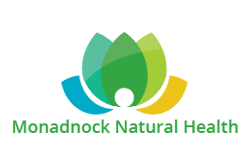 There is little doubt that the COVID-19 outbreak is disrupting our lives as we know them. This can and most definitively will present some major challenges for us, well beyond the chance of contracting the virus. At the same time and especially in light of the current situation, we can and should take this opportunity to examine how we safeguard our most precious asset, our health.
There is little doubt that the COVID-19 outbreak is disrupting our lives as we know them. This can and most definitively will present some major challenges for us, well beyond the chance of contracting the virus. At the same time and especially in light of the current situation, we can and should take this opportunity to examine how we safeguard our most precious asset, our health.
From what we’ve seen so far, like most contagions, this virus preys on the more vulnerable of the population. To put it another way, those with weakened or compromised immune systems.
All eyes are fixated on how and whether we can mitigate the current situation, through testing and social distancing. But it also exposes the uncomfortable fact of how unhealthy our society has become. This virus has exposed our vulnerability.
It’s not as if the signs haven’t been there.
Most people would agree that we’ve been experiencing a health crisis in this country. With all due and warranted concern for the current corona virus situation, why are we not paying attention to the immensely larger problem of chronic disease?
A majority of adults and a third of the children in this country live with chronic degenerative diseases. And it’s seen as totally normal. We’ve come to accept this as our baseline of health. It’s shameful.
Chronic disease has led to tremendous suffering for many who have been afflicted with it. It most certainly robs us of our quality of life. It can drain our energy, deflate our enthusiasm in addition to our checkbook, and even limit our freedom. The ripple effect of the manifestation of poor health in this country goes far beyond our personal woes. Check out my book, “The Wellness Effect”, for a deeper discussion on the subject.
As we’ve learned, the demographic most vulnerable to COVID-19 and other viruses is the elderly. Unfortunately, it speaks poorly of our overall health as a society, if our elderly is automatically sentenced to be sickly and immunocompromised – just because they’re older. And we’ve come to accept this as a fact of life. What if that wasn’t, or at least did not have to be the case?
Another vulnerable group is those with autoimmune disorders. Twenty years ago, when I first began to experience my own challenges in this area, autoimmune disease was quite rare and there was very little, if any, information available. Today there are over one hundred identified autoimmune diseases.
With minimal research and an eye for logic, it’s not hard to understand how we’ve gotten to this point. It could be summed up in a word – stress. And due to the abundance of it, staying healthy in the modern world seems to be more than the average person can attain.
There are chemical stressors in the form of pesticides, preservatives, additives, hazardous toxins and fragrances. They come from personal care products, detergents, processed foods and countless other daily interactions. It’s not any one of them but rather the cumulative effect of many that cause constant deterioration of our health. These chemicals disrupt hormone communication and cause a general deterioration of our health.
What about emotional stress? There doesn’t seem to be any shortage of that these days. There are so many ways that stress disrupts our health, you could easily fill a book. When our physiology is tied up in stress, our resources are primarily directed toward surviving – not thriving and certainly not healing. And consequently, stress hinders our immune response, making us more vulnerable to contagions.
There is also a biological stress that comes from the lack of adequate nutrition. We need specific nutrients to assist in the everyday running of the body. When these nutrients are unavailable or we can’t even properly digest them, bodily mechanisms like digestion, hormone conversion, detoxification and every single other process are hindered. Malnutrition is rampant amongst all demographics, but particularly among lower income families.
The cumulative combination of these and the many other stressors prevalent in our modern culture are what drive and perpetuate chronic illness. That’s why chronic diseases are known as lifestyle related diseases.
And now, faced with trying to control the spread of COVID-19, we’ve had to shut down our society, damage our economy and do many irreparable harms. Even, given this destructive fallout, this may be a necessary short-term strategy.
What about the long-term strategy?
Well, they’re working on a vaccine. Okay. Is that going to be similar to the highly ineffective and potentially harmful flu vaccine? Let’s say for argument’s sake that the vaccine works in the future. With the way that viruses mutate, who’s to say that next year or the year after we don’t have another new disease. Will that mean shutting down society and crashing the economy again? And then another vaccine twelve to eighteen months later?
There are currently around 270 vaccines in the pipeline that will be available and likely mandated in an attempt to help prevent disease. That’s almost one a day if you don’t count weekends. When does it end? And more importantly, what does it really accomplish? Does it make us healthier as a society? Will this strategy solve the chronic health problem in the country, or will it make it even worse?
What if we looked at this from a completely different angle? What if we were to focus our attention on taking a proactive approach to our health?
How would we do that? Simple. We would address the underlying causes of why we lose our health in the first place. We would have to adopt healthier lifestyles. We would need to get our bodies cleaned out and detoxified, and work to clean up our toxic environment. We need to support our health and our immune system with adequate nutrition. That would require making healthier choices and advocating for those choices to be available to us. We need to reduce our stress by finding peace and finding purpose.
What are the possible consequences of this strategy? We’d be healthier. We’d be happier. We would drastically reduce the need for medications. We’d drastically reduce chronic illnesses and dramatically increase the quality of our lives. We’d have more energy. We’d be more productive. We’d have deeper, more meaningful relationships.
And we would not be so vulnerable to the next new virus – which is sure to come.
This current challenge offers us an opportunity to rethink the reactive strategy that has dominated our mainstream medical approach. Isn’t it about time we start focusing on a proactive approach to our health? It’s logical, practical, essential and I believe it is the moral imperative of our time.

